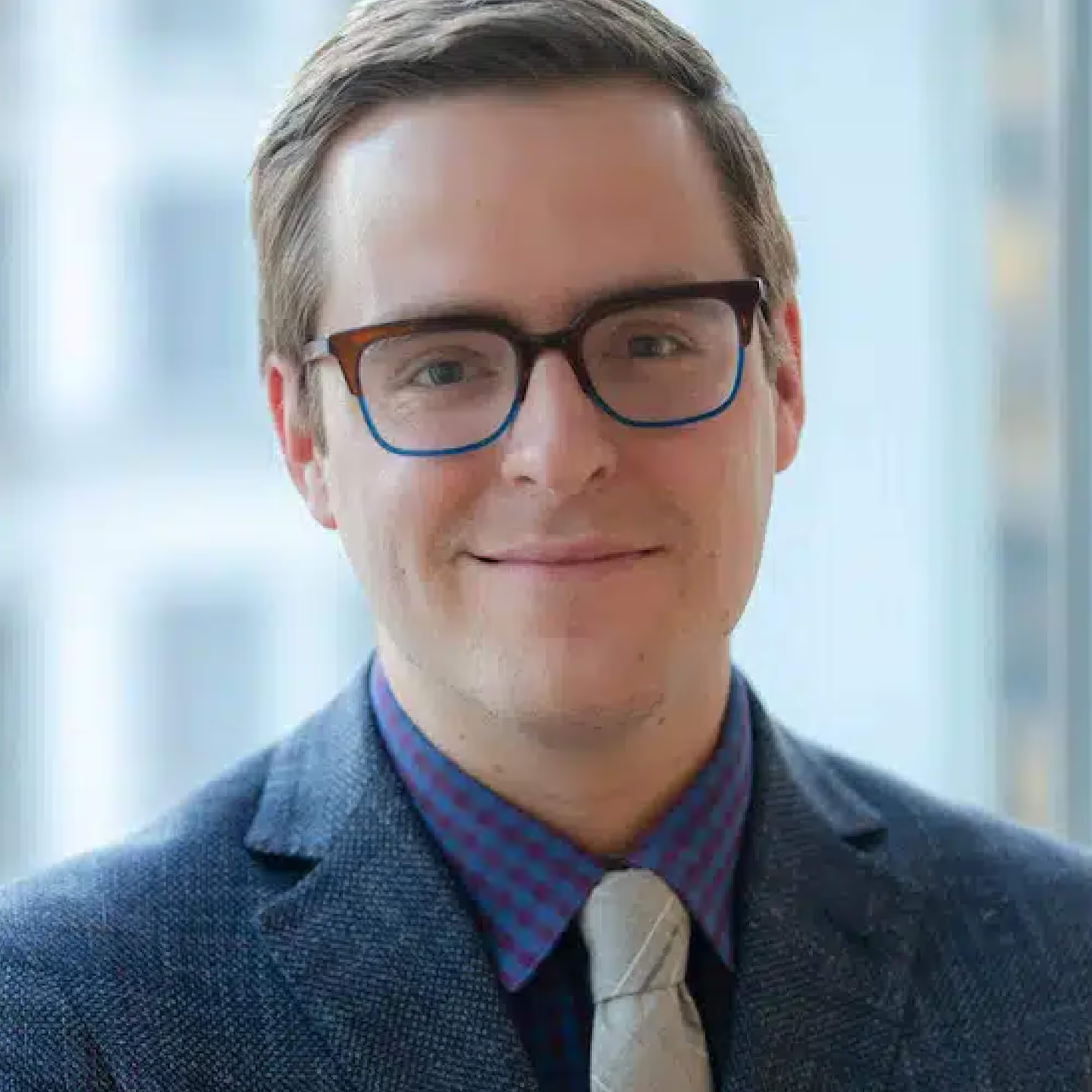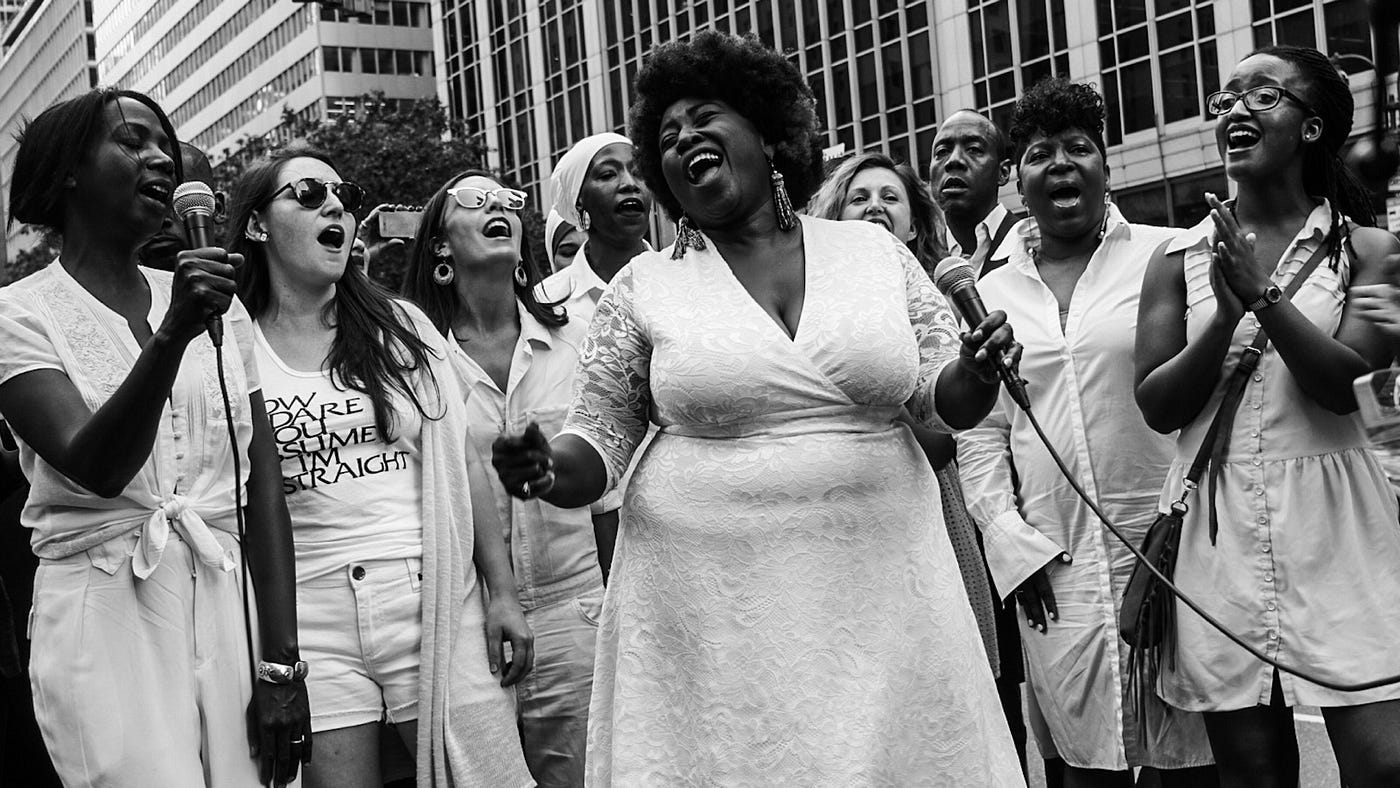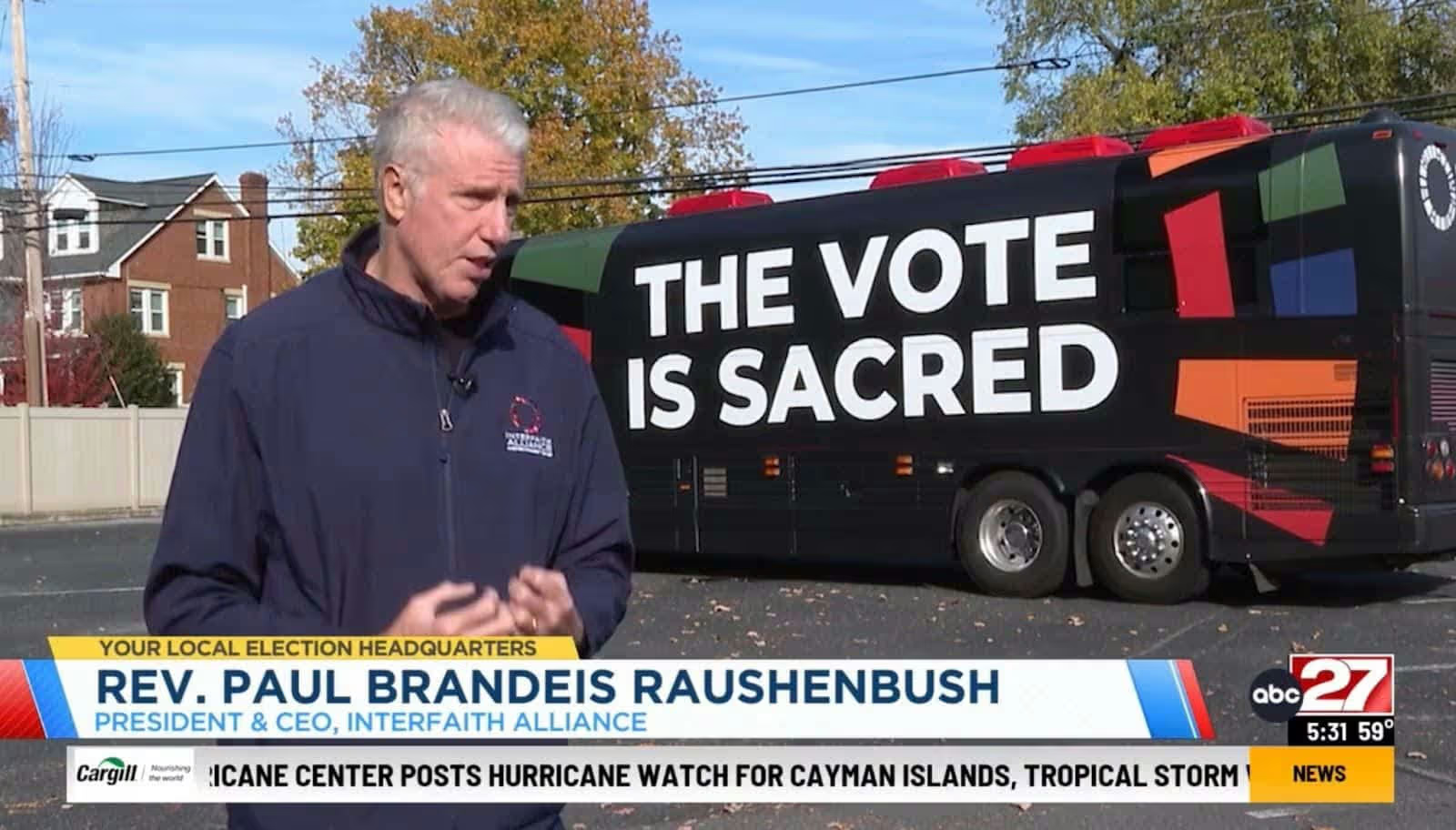
General
The Vote is Sacred Tour: Harrisburg, PA
On the eve of Election Day, The Vote is Sacred Tour visited Harrisburg. A camera crew from the local ABC News affiliate was waiting at Beth El Temple for us when the bus arrived. We met up with Rabbi Carl Choper of Interfaith Alliance of Pennsylvania and visited the capitol building and other sites around the city. We finished our visit to Harrisburg with a press conference in partnership with Power to the Hill, which engages voters and promotes active citizenship in the Allison Hill neighborhood. The reporter from the ABC affiliate delivered a live report from the site of the press conference.
You can watch the in-depth report here:
We departed Harrisburg for Philadelphia after the press conference and were able to watch the report on the television on the bus! Here’s a photo of that exciting moment!
Transcript
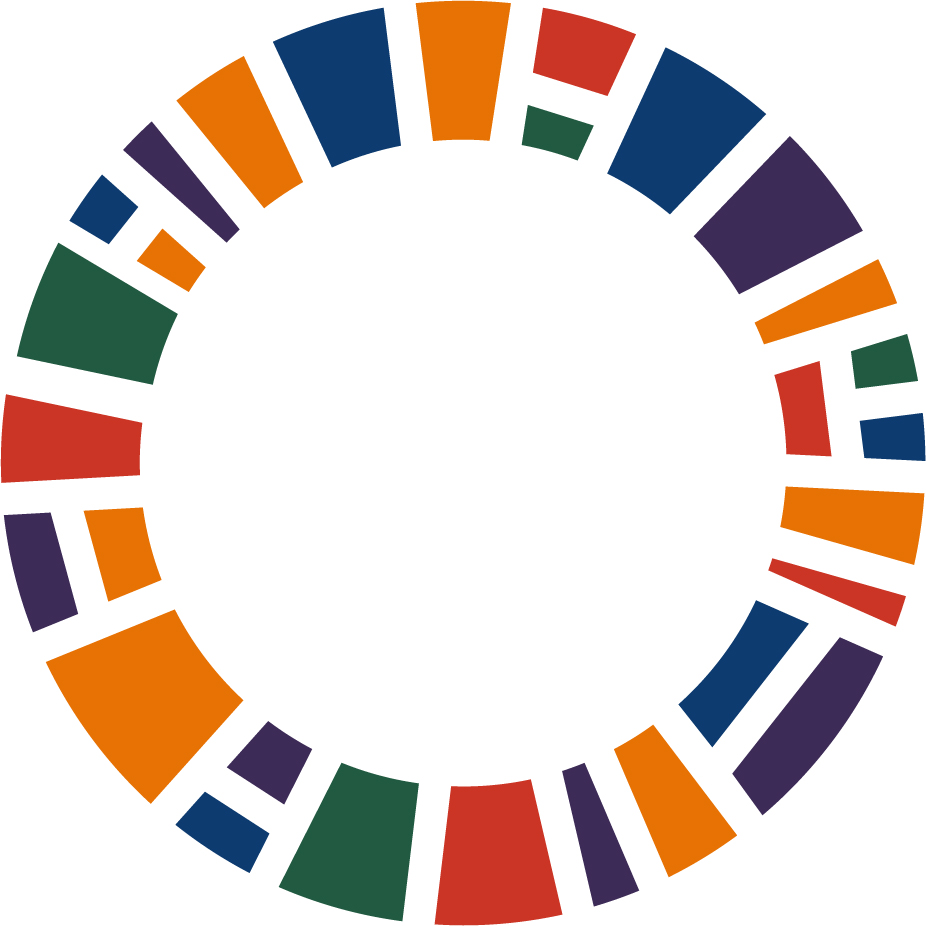
Announcing the 2025-2026 Interfaith Leadership Network Fellows
Interfaith Alliance is proud to announce the 2025–2026 cohort of the Interfaith Leadership Network, an extraordinary group of clergy, pro-democracy advocates, and community leaders advancing civil rights, inclusive religious freedom, and democracy in communities across the country. Through practical support, funding, and a powerful peer network, these fellows will mobilize interfaith collaboration to confront urgent local challenges and strengthen a pluralistic democracy.
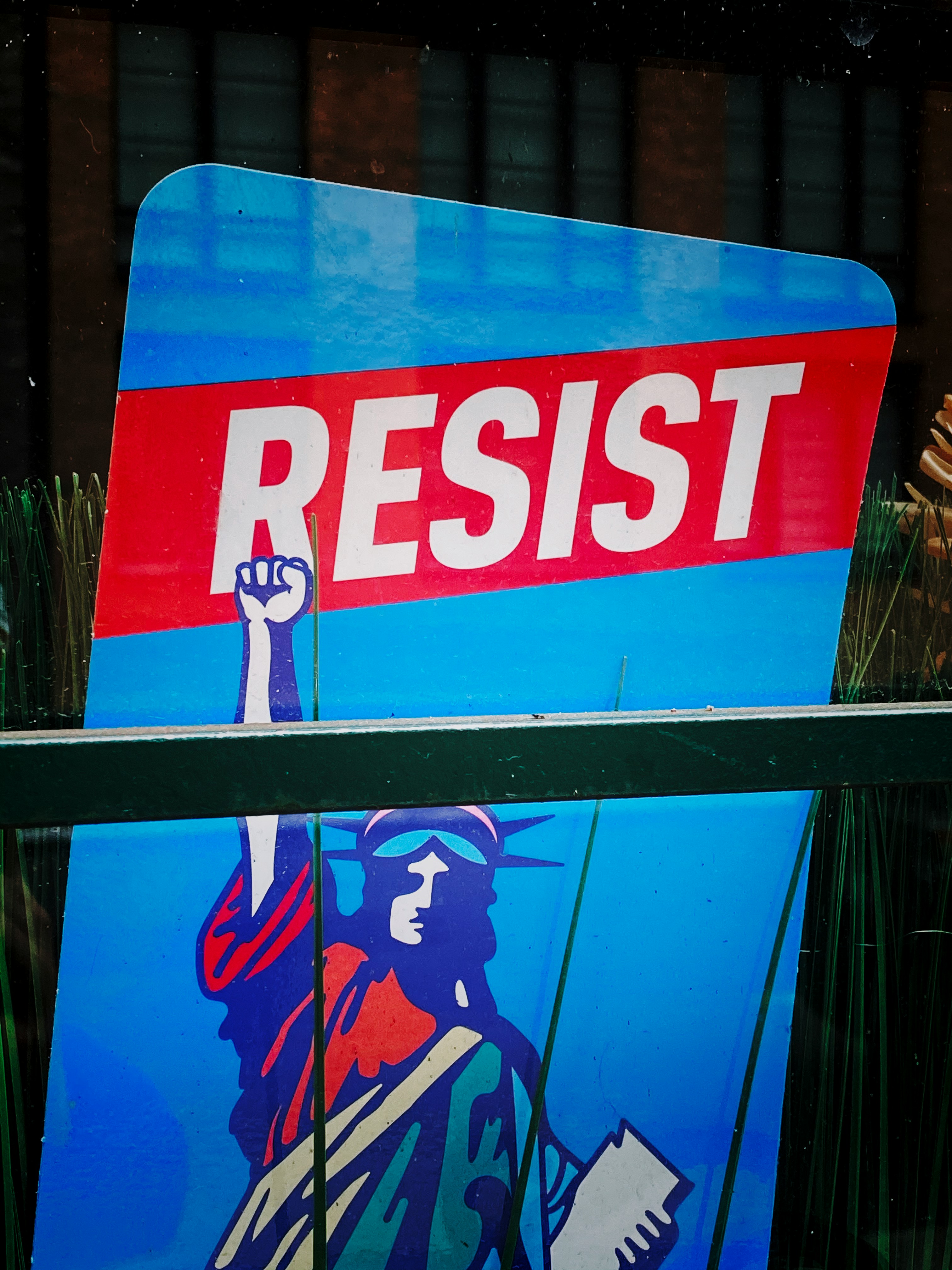
One Year of The Trump Administration’s Attacks on Faith Communities and Abuse of Religion
Over its first year, the Trump administration has weaponized religion to advance a white Christian nationalist agenda, attacking faith leaders, houses of worship, immigrants, and religious minorities while undermining core principles of religious freedom. Even as federal power has been used to intimidate and exclude, faith communities across traditions have mobilized to defend democracy, pluralism, and the right of all people to practice their beliefs.
